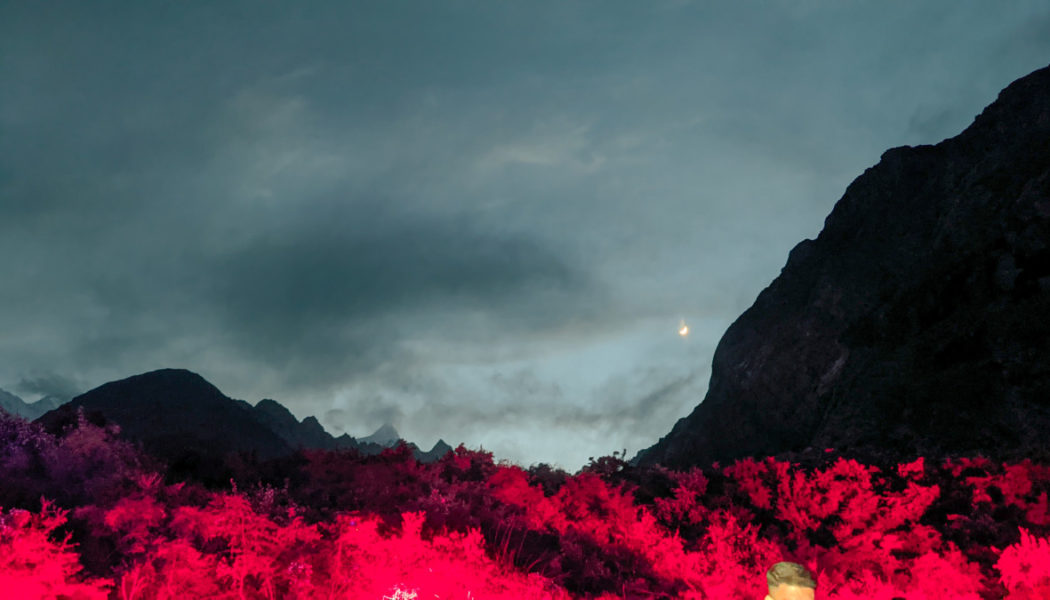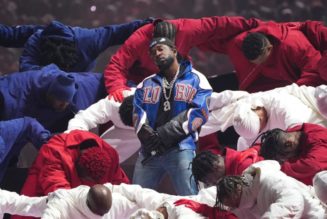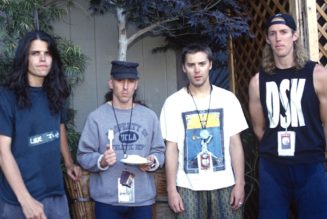Before prohibition and religious radicalization under the rule of Zia Ul Haq in 1977, Pakistan’s nightlife was thriving. In the bustling metropolis of Karachi, clubs like Excelsior, Oasis, Samar, and Club 007 openly served alcohol, hosted American jazz musicians like Dizzie Gillespie and Duke Ellington, and attracted professional belly dancers from foreign cities like Beirut, Cairo, Tehran, and Istanbul.
Sweeping conservatism shuttered Pakistan’s nightlife, thwarting any chance for dance music to enter the fold. In recent years, however, regional stability and tides of liberalism have birthed interest in electronic music beyond house parties and underground raves.
Diplo performed in Islamabad in 2016 before returning in 2018 alongside Valentino Khan and Chrome Sparks for a Pakistani rendition of his famed Mad Decent Block Party. Danny Avila, FDVM, and Clean Bandit are among other international dance music acts that have performed in Pakistan over the last few years.
Hunza Verse, a recent music festival in northern Pakistan, was poised to be another bud in the blossoming chrysalis of Pakistan’s dance music epoch. Unlike many events preceding it, the fest traded cityscapes for snow-kissed mountains, focusing on community over crowds and local talent over international acts.

The music festival took place in Hunza, a valley in the northern part of the Gilgit-Baltistan region of Pakistan.
Haya Zaidi
The 370-person festival organized by Evntm went off last month without a hitch, but soon after, social media propaganda set the event ablaze with accusations of vulgarity, drug use, littering, and disrespect of local culture. The backlash went so far as to prompt local officials to ban music festivals in Hunza.
EDM.com spoke with the festival’s founder Faran Khan and marketing lead Zayan Abedeen to dig into the cause of the uproar, as well as the organization and motivations behind Hunza Verse.
A festival born of imagination
Khan’s longing to put together a music festival in Hunza has been simmering for a few years.
“The first time I visited Hunza was four years ago on a trip with my friends,” he said. “I saw the mountains and I was like, ‘We can do something over here, why isn’t anyone?’ The kind of mountains we have, they’re the best in the world. I’ve traveled a lot but the scale of mountains we have in Pakistan, I haven’t seen anywhere else. Imagine Nicholas Jaar or Lane 8 playing here one day.”
Unfortunately, at that time, Khan says his optimism wasn’t matched by others. “The idea of this entire festival was so unreal for Pakistanis,” he recalled. “Whoever I spoke to was like, ‘Yeah sure, one day someday.’ I was like, ‘No, I really want to do this! Can you guys be a part of this?’ I was looking for investors and others who could help me with this but found no one. Everybody thought that this can’t happen, but I kept trying to figuring out.”
Despite a lack of support, Khan remained steadfast and took it upon himself to push the idea of a music festival in Hunza forward.
“I literally moved to Hunza for the past three years in a guest house. I knew if I have to do this I have to stay there and figure out everything,” he said. “If you’re doing this in a big city like Karachi or Islamabad, all you have to do is get an event company, hire someone, and they can do the job for you. But not in Hunza. The community setup is so strong, they have to know you in order to give you permission to do something of this sort, on this scale. I had to figure out logistics, accommodation, understand the local culture and community to make them part of this, to make it productive for Hunzais.”
Keeping community close
Working with the local community was a key pillar in organizing the festival. Khan celebrated the notion that “the entire community was with us, they were part of this.” He says they helped plan “everything from accommodation and logistics down to where to get wood from.”
“I myself worked with 40 or 50 local Hunzais to manage and execute different parts of the events,” Abedeen elaborated. “They were all paid to work for this festival. All were in high spirits and had no issues whatsoever with the event taking place. Permissions from the highest to the lowest ranks of police were obtained. An NOC [No Objection Certificate] was given for the event after 15-plus signatures of local elders in Passu were handed to the local police station to permit this event. Many high-ranking officials also attended all three days of the event to make sure everything was all right.”
“As a local who attended the festival, I feel that Hunza Verse was one of the best things that could happen to Hunza,” Wajid Abbas, a Hunzai local who attended the festival, told EDM.com. “For the three days, most hotels and guest houses were fully booked. It helped us get out of the rut that we went into soon after COVID-19 hit. Festivals like this have the ability to boost tourism to such an extent that foreigners will want to come to Pakistan to attend festivals like Hunza Verse in nature.”
A social media firestorm
The organizers of Hunza Verse found themselves under fire after Pakistani-Canadian influencer Rosie Gabrielle, a self-proclaimed “solo female motorcycle adventure traveller, Photographer and video creator,” took to Instagram to voice her disapproval of the festival.
Recommended Articles
In an inflammatory post that has garnered over 35,000 likes and precipitated a flurry of coverage from major Pakistani news outlets, Gabrielle alleged Hunza Verse was “destroying Hunza’s culture” and “bringing bad behaviours, drugs, vulgarity, rave parties and leaving a lot of trash.”
EDM.com reached out to Gabrielle for comment but she declined an interview.
“Spreading stuff through social media is so easy, you can create any narrative about anyone and screw their life over in a matter of days,” Khan said. “Those are [Gabrielle’s] concerns, we can have a conversation to figure them out. I thought we could sit down or get on a phone call because I know her husband directly. When I moved to Hunza, he was there as well, there was no beef at all. I was not expecting this at all.”
The backlash went beyond disapproval of Hunza Verse, affecting Khan personally, he says, after Gabrielle doxxed him online. “She posted three or four Stories and shared my profile as well. Because of that, I started getting death threats,” he said. “And a recent post about Hunza Verse that I had put up had like five or six hundred hate comments. My inbox was flooded with death threats, everybody was losing their shit.”
Despite being bombarded with death threats and personal attacks, Khan remained collected in conversation. “Again, if her concerns were legitimate, I would have addressed them directly,” he continued. “This entire festival was my passion project—it was not something I was doing for money. I’ve been planning this for four or five years. I was staying in the mountains away from my family. They asked me to come stay with them in the U.S. but I was like, ‘No, I have to do this.’ And after all those years of effort, after I put on a show, the next day someone is accusing me of doing ‘sex parties.’”
“The people complaining about the event are sitting hundreds of miles away virtual signaling and reframing the event into something it wasn’t,” Abedeen added. “How can anyone give an account of something if they weren’t even present at the premises?”
Tackling public concerns
Gabrielle’s allegations are severe and have sparked public outcry due to their ties to recurring problems in the region, which are easily assumed to be true. Tourism in northern Pakistan, particularly in Hunza, has a notorious littering problem. Local culture in Hunza is carefully preserved and holds different values and norms than other parts of Pakistan, particularly big cities. Electronic music—in and outside of Pakistan—is often mischaracterized as an avenue for drugs and debauchery.
Considering the weight of the accusations, Khan and Abedeen broke down their side of the story with EDM.com.
Expanding on the years spent in Hunza to involve locals in the organization of the festival, Khan said the messages he’s receiving from the local community are “completely opposite.” “Trust me, if the locals had any problem, I was at the same venue for three days, they could have screwed me over—it was one-two-three for them,” he said. “But, like I said, they knew everything about me. They were out there to support me.”
Community inclusion extended to music too. “The first day of the event was completely dedicated to local Hunzai artists and was open for all locals to attend,” Abedeen said. “Also, on the second day, a local Hunzai DJ performed just before my own set.”
“Four hotels in the area were completely booked out with festival-goers from across Pakistan,” Abedeen continued, characterizing the financial impact of the festival as a boon for the local economy. “The restaurants in that area stayed open 24/7 as they had multiple festival attendees giving them business at all times of the day. This is incredibly important for a community who has faced issues during the pandemic.”
“As far as the legitimate problem of trash goes, none of the pictures Rosie put up had anything to do with the festival,” Abedeen clarified. “They were general pictures of trash found around the northern areas of Pakistan. As people close to me know, I am also an advocate for cleaning up trash, whether in mountain regions or in my own trash-littered city. I work in the event industry and have lamented the trash problem in festivals and events across Pakistan.”
“However, in this festival in particular we did not see any trash on the second and third day. Whatever inevitable littering occurred the day before was meticulously cleaned up the morning after. This was a key part of the logistical planning related to the event, and something all collaborators of Hunza Verse deeply cared about implementing. We care about our own land and are educated enough to know what pollution does to it.”
Responding to unfounded accusations of drug promotion, Abedeen bemoaned those who alleged illicit substance use at the event and asserted that “drugs and alcohol were officially banned from the premises.” “However, in any event around the world or in Pakistan,” he added, “it is impossible to completely restrict every single person who might hide it or sneak it in.”
Looking ahead to dance music in Pakistan
Thinking about how to improve things for his next music event, Khan said he’s considering a different approach so he can control the narrative. “I have to keep a team of influencers because someone could create a fake narrative,” he said. “Seriously though, I would want all news outlets to be out there, reporting live. Then nobody can claim it was a secret rave. It was not a secret at all. I was promoting this festival through Instagram, so were the artists. It wasn’t an underground rave.”
Khan is looking ahead to greener pastures with the hope of pushing Pakistan’s dance music scene forward.
“With a team of locals, we’re going on a summit on a 6,000-meter mountain and we’re breaking two world records: world’s highest DJ set and world’s highest dance party,” Khan declared. “We brown people, we love to dance! This is for Pakistan from the Pakistanis. We’re not getting any international trekkers from UK or anything—it’s just the youth of Pakistan doing this. This is literally my reply to all these bloggers and whoever is trying to screw things up for us. We got this.”











